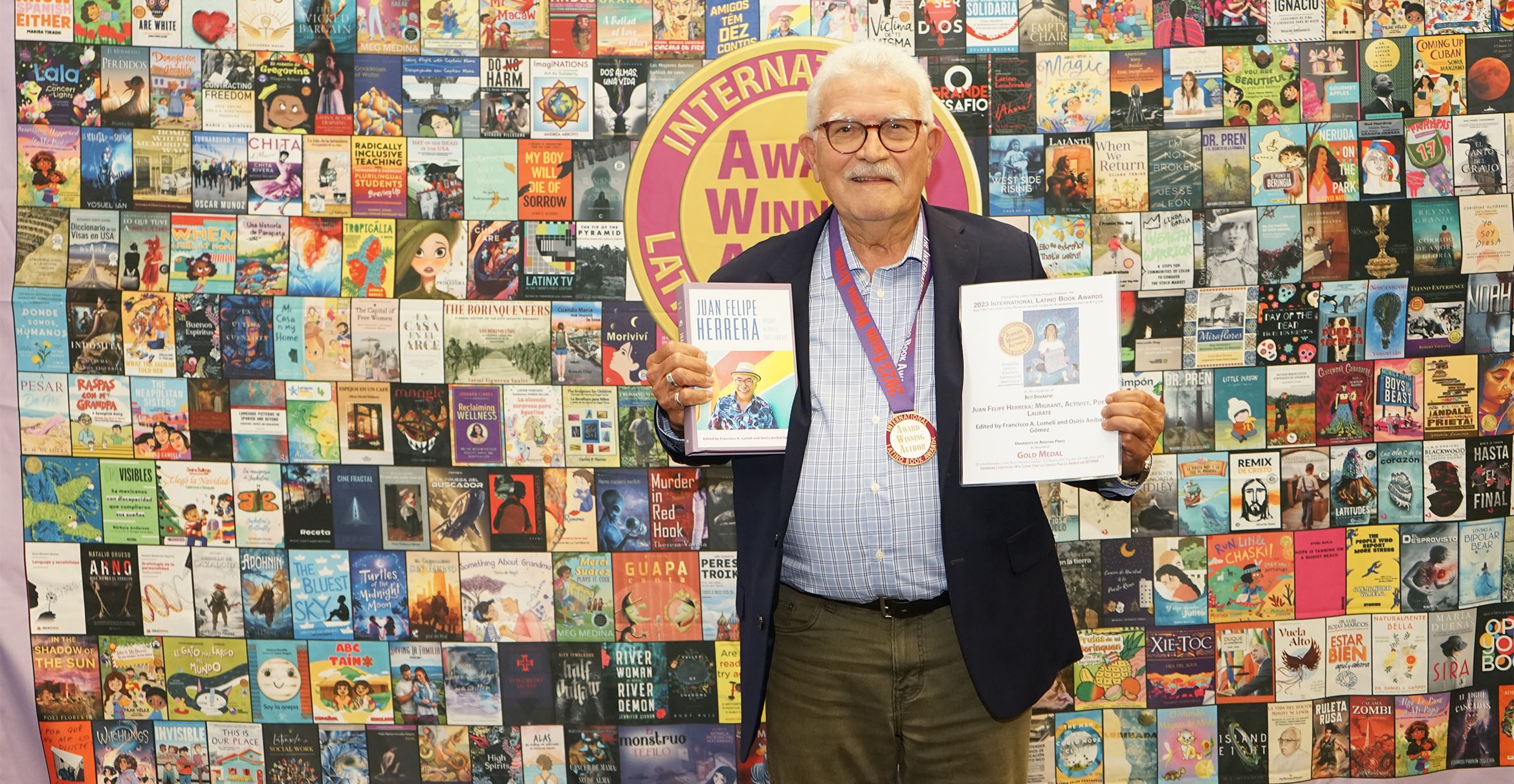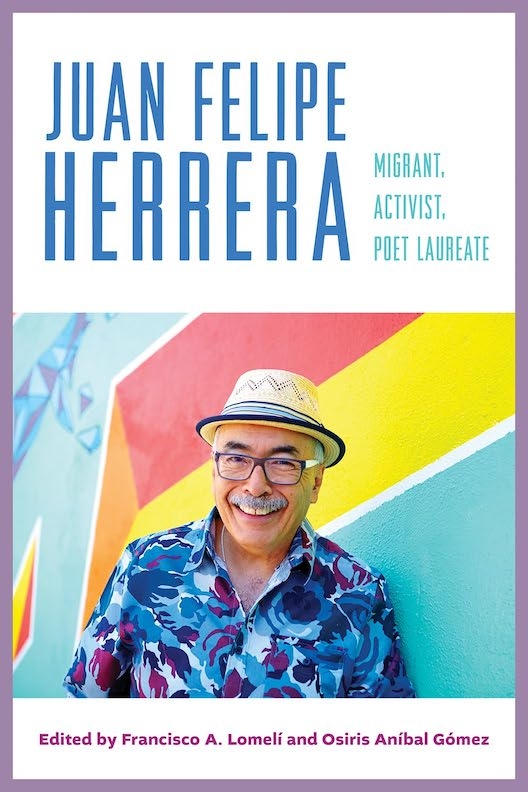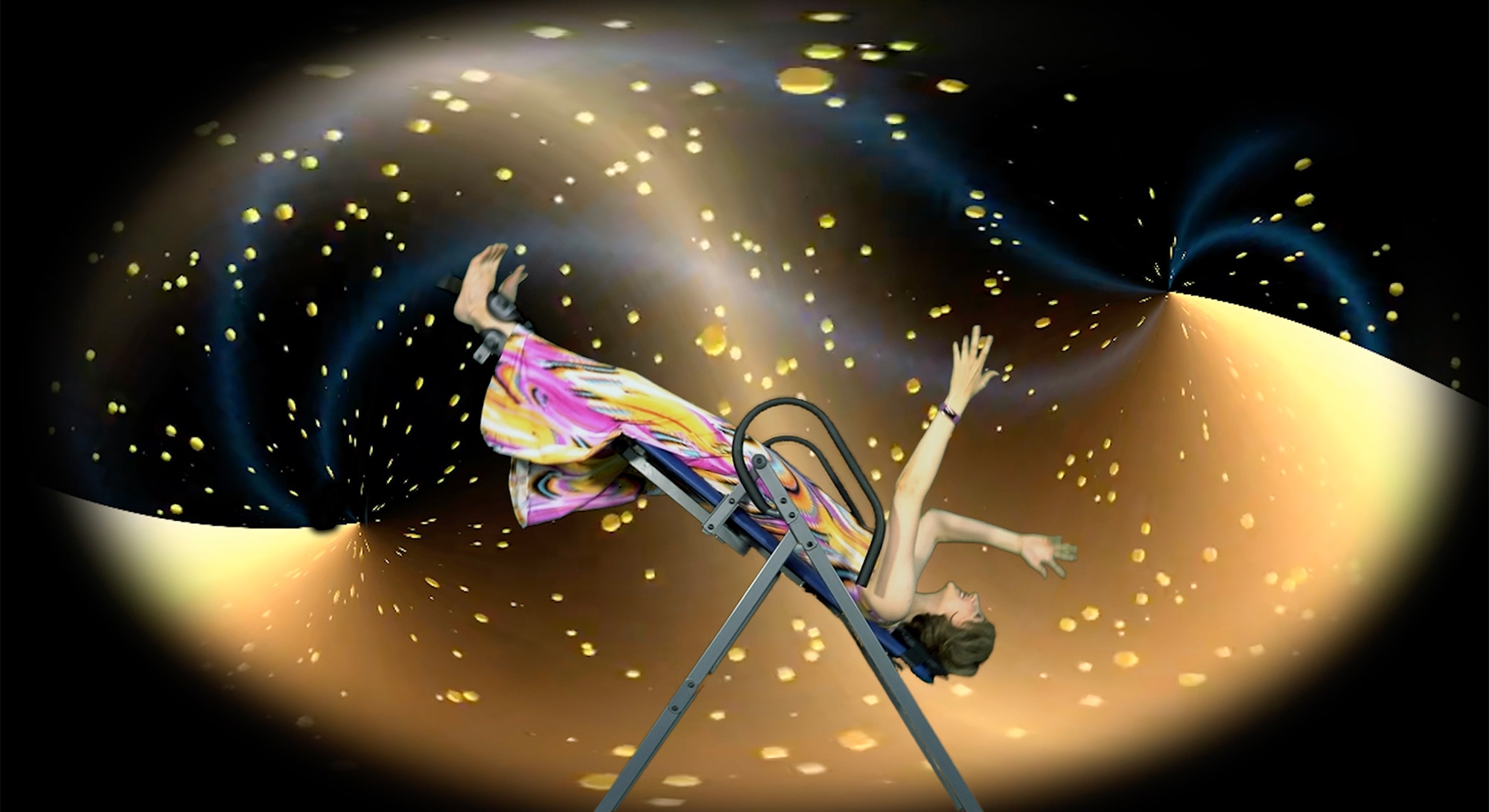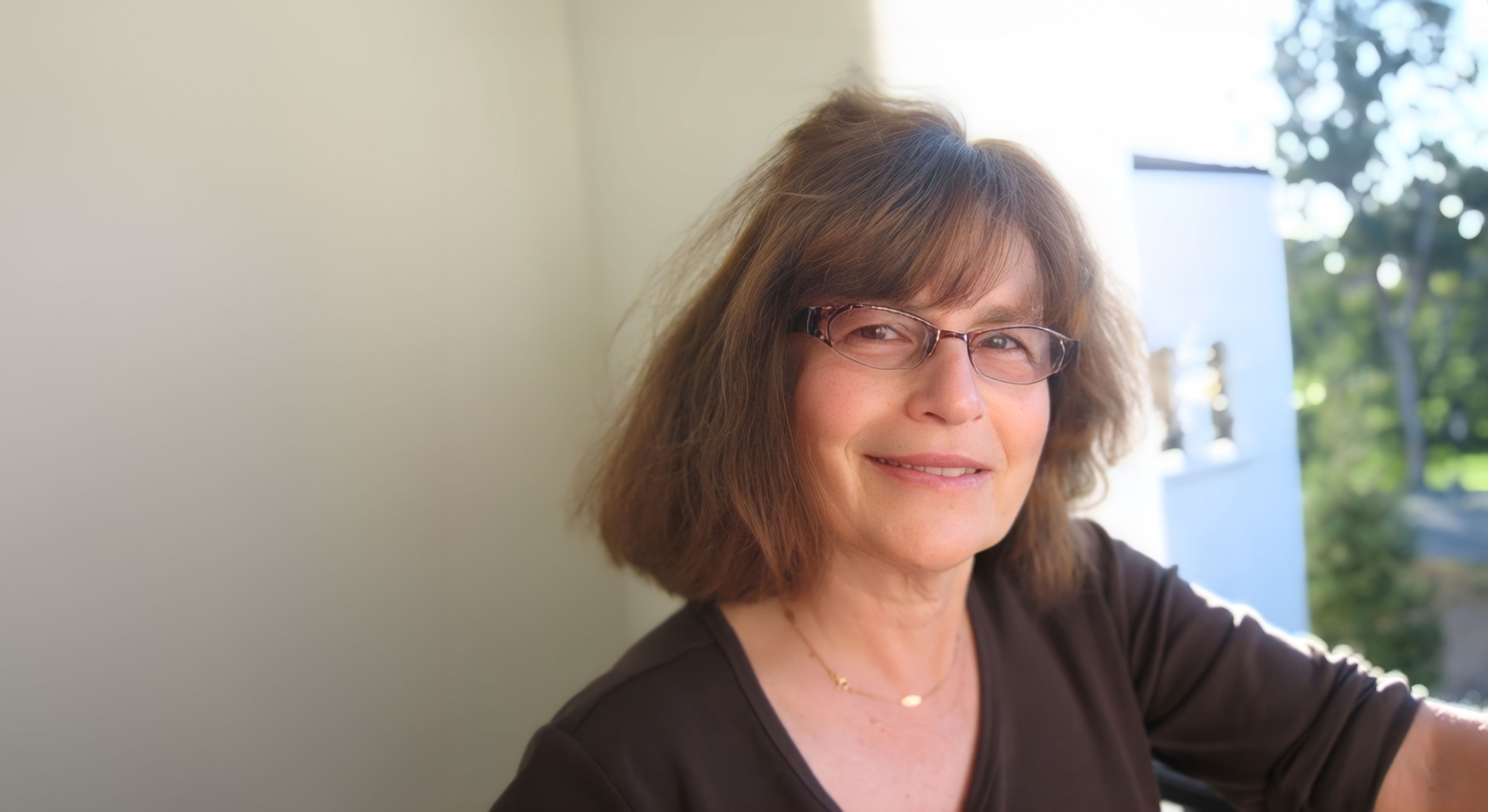
For fans of Juan Felipe Herrera, the praise rings true — the famed Chicano writer and poet laureate is as versatile and experimental as he is resourceful and prolific. Despite his popularity and renown, however, an anthology of critical essays on the significance of his work had yet to exist.
To fill that void, UC Santa Barbara Professor Emeritus Francisco Lomelí and Osiris Aníbal Gómez, PhD ’20, an assistant professor at the University of Minnesota, co-edited a wide-ranging book on Herrera’s 50 year career. Their effort, “Juan Felipe Herrera: Migrant, Activist, Poet Laureate” (University of Arizona Press, 2023) recently won an International Latino Book Awards gold medal.
“I became interested in his writings when I first met him when we were students in 1972 in San Diego.” Lomelí said. “I have followed his work ever since, predicting he would have a remarkable career because of his penchant for experimentation, masterful handling of bilingualism and Spanglish, performative cachet and his unique perspective on human suffering, alienation and poverty. He stands out as a distinctive critic and witness of his time as he has crisscrossed virtually every poetic movement and trend that have captivated readers in the latter part of the 20th century and into the 21st.”

Herrera, originally from Fowler, California, is perhaps best known as the first Latino/Chicano U.S. Poet Laureate (2015-2017).
“This poet laureate appointment was truly a big deal on so many levels,” Lomelí said. “Literature written by Chicanos, and Latinos in general, had not been seen as a basic staple for American consumption, even in literature departments. In the 1960s and 70s, our literature was seen only as an instrument of social struggle and less so as a legitimate voice of aesthetics. The acknowledgment of bilingualism and Spanglish was not particularly well received, and discussing our ancestors, our Aztlán homeland and many qualities of our culture seemed outside the radar of most literature departments. Our barrio aesthetics as well as our social struggles also seemed too insular for the mainstream. Herrera’s poet laureate appointment finally soothed those inconsistencies within American literary circles.”
Herrera also served as California Poet Laureate from 2012–2015.
Providing a close examination of Herrera in all his poetic variety, “Our book stands out as the first critical collection of this outstanding and internationally known writer,” Lomelí said.
Moving through five parts across 472 pages, the book includes critical essays on Herrera’s poetics, in-depth analysis of his innovative and experimental approaches, discussion of his children’s and young adult books, insightful interviews and an extensive bibliography.
“Herrera is as generous as he is prolific,” Gómez said. “When he is not writing or researching for a new book project, he is most likely assisting upcoming writers who are members of underrepresented communities to amplify their artistic expression. Through this act of service, generosity and empathy, he has found a strong communal source for resilience explored in all his writings. To him, like many other writers of this uncertain and violent era, writing is an opportunity to come together, conjoining experiences and finding a healing agency in the collective.”
In 2022, Lomelí and UCSB colleague Marc García-Martínez won an International Latino Book Awards silver medal for “A Critical Collection on Alejandro Morales: Forging an Alternative Chicano Fiction” (University of New Mexico Press, 2021).
“I’m ecstatic that I have won in two consecutive years for these books that represent a tremendous amount of work and collaboration by recruiting dozens of leading experts to write critical studies on the respective authors,” Lomelí said. “We tried to also emphasize an international focus on the critics we recruited.”
Keith Hamm
Social Sciences, Humanities & Fine Arts Writer
keithhamm@ucsb.edu



